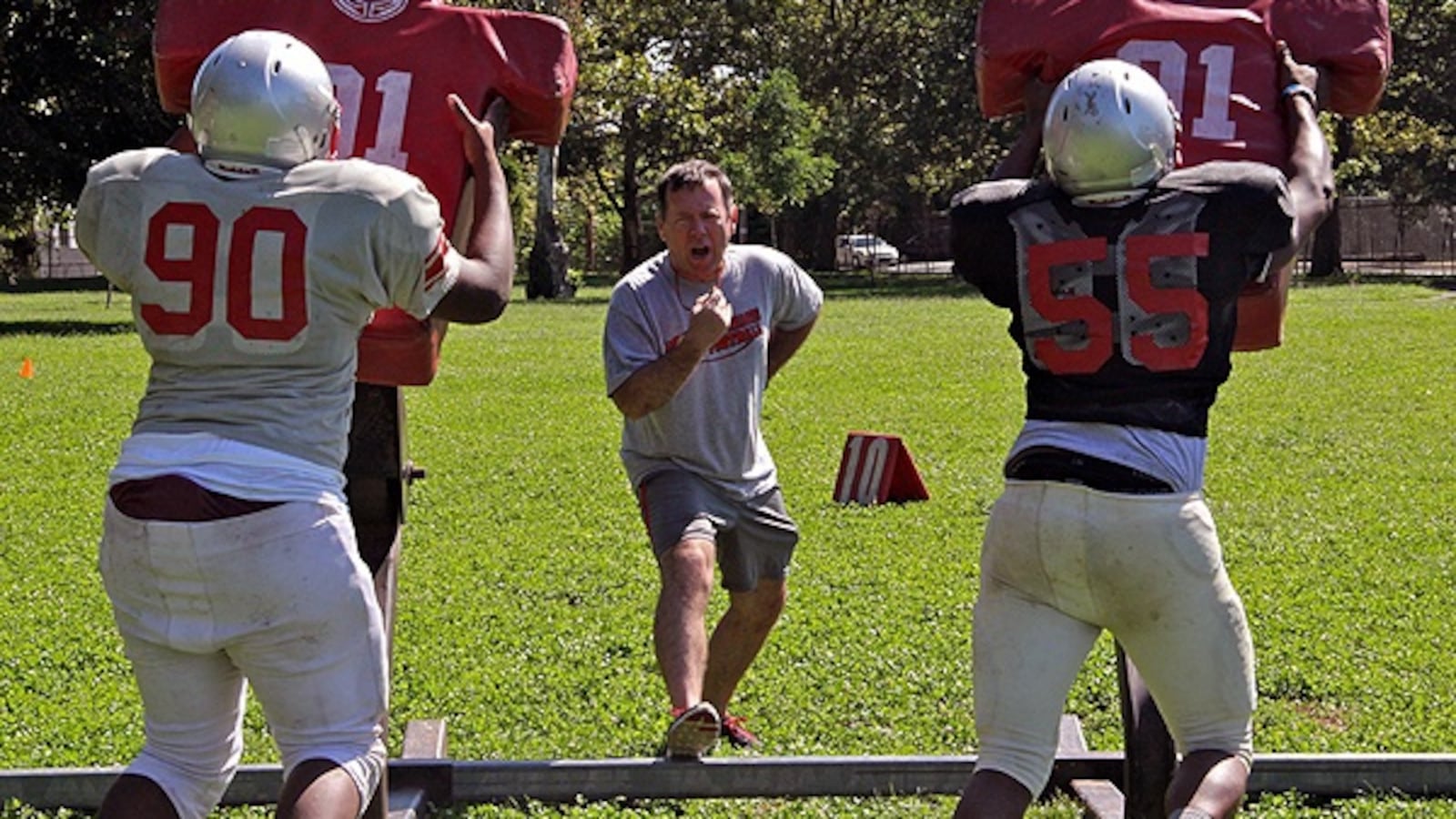This article was originally published in The Notebook. In August 2020, The Notebook became Chalkbeat Philadelphia.
by Kevin McCorry for NewsWorks
Under a bright-blue North Philadelphia sky, Coach John Sullivan runs around a grassy field in gym shorts and a T-shirt, teaching the Dobbins High School football team lessons in follow-through.
Two players shuffle side-to-side separated by a line of small orange cones. Dobbins’ imposing facade towers high above them. In the far distance, beyond a maze of train tracks and power lines, the city’s skyline glistens.
Sullivan blows his whistle. The players collide in the tackling drill, their pads crunching. "Keep moving the feet," Sullivan yells. "Wrap ’em up!"
The players stalemate, pushing each other sideways until they fall. The screech of Sullivan’s whistle again fills the air. He calls for the players to get back up and do it again.
Repetition. Discipline. Teamwork. Follow-through. It’s the creed of high school football. And it’s why some educators, like Sullivan, argue that team sports should join art, music and theater as extracurricular activities to be preserved even amid the Philadelphia School District’s fiscal crisis.
For now, fall football has survived the ax, but many other extracurricular activities face uncertain fates, thanks to the budget shortfall.
Surrogate familes
Sullivan, a native of Northeast Philadelphia and graduate of Archbishop Ryan High School, used to work in the business world. When the company he worked for was bought out, he accepted a severance package and then pursued his dream of teaching, despite the lower pay.
"I was here for a week when I realized I made the right decision. I had more satisfaction in a week of doing this, than in 12 years of the other thing," said Sullivan, now a 14-year veteran of teaching history and coaching Dobbins Mustangs football.
Sullivan has come to see just what follow-through — specifically in the structure of extracurricular activities — can do for students who can otherwise tend to fall through the cracks.
"I’ve seen them grow," he said. "I’ve seen so many kids that they’ve given up on, that school will tell me: ‘This kid probably shouldn’t play,’ and I’m telling you, if you saw him by his senior year, he’s one of the more upstanding kids in the school."
Linebacker John Young has seen the change in his own life. Now going into his senior year, Young says he didn’t start taking schoolwork seriously until football taught him the payoff for dedication.
"It helps you learn responsibilities and discipline so you can be better at school and get better grades, and hopefully be better in life," he said.
Each year’s team becomes like a surrogate family, Sullivan says, for kids who often face daunting struggles in their personal lives.


